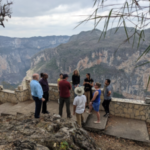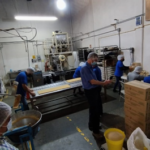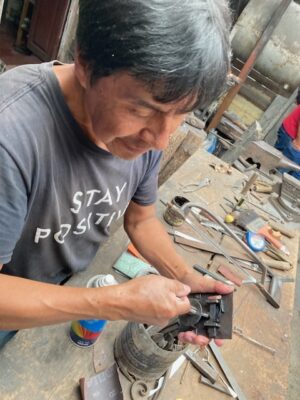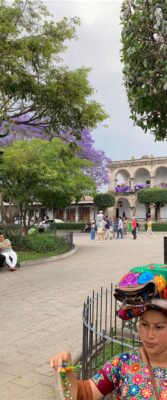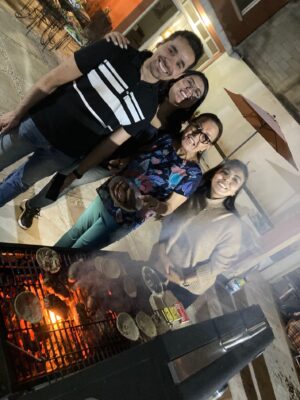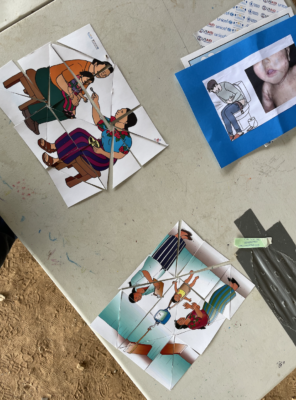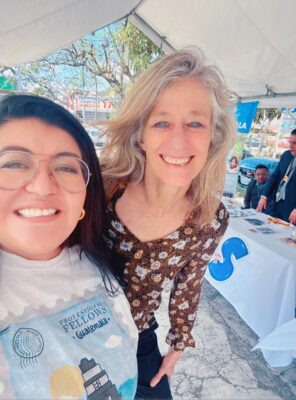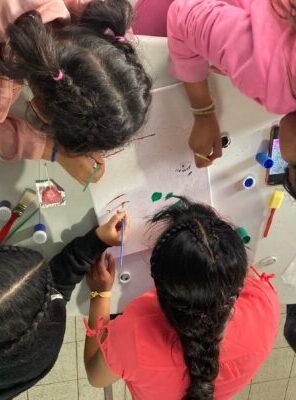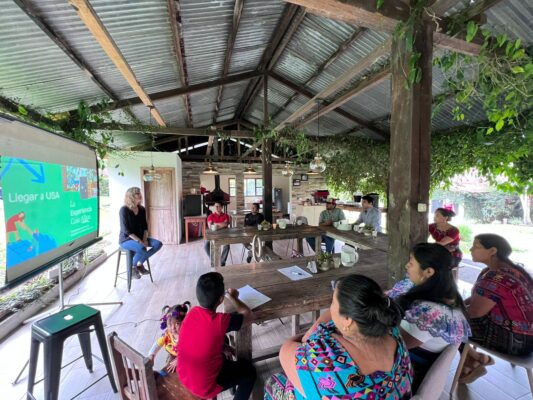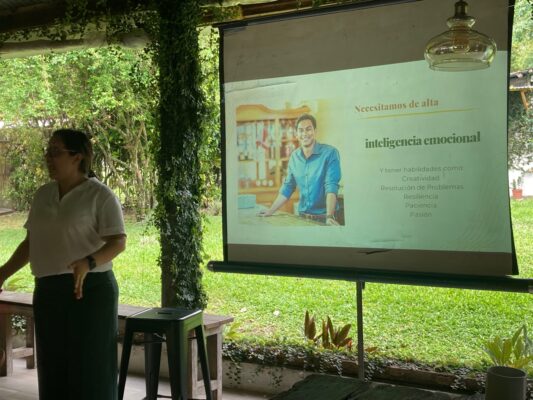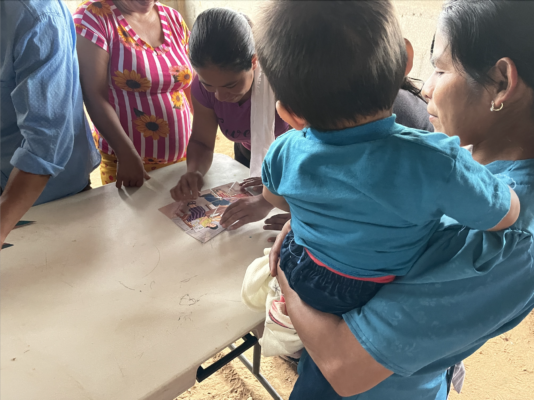By Christine Stewart, Tucson, Arizona
It’s a bumpy curvy road into San Cristobel, Chiapas. As the team of Fellows step out of the van onto the cobble-stoned street, straighten our bags and lift our eyes, we are met with a vibrant flutter of color against ancient plastered walls of a pueblo. We have some sorting to do. Real life is complicated. Each story is told from a distinct perspective, rough but vivid threads woven together much like the fabrics lifted up with plaintive stares; do you see me?
Our journey is twofold. We have been challenged to both deepen our understanding of the systems and approaches for engaged citizen involvement in public policy and development in Mexico and Guatemala, as well as to share some of our own experiences and lessons learned with economic and community empowerment.
Community empowerment. As the days unfold, this truth is clear: community empowerment is indeed the brightly colored fabric of hope. Our first meeting with staff members from the U.S. Embassy in Mexico City and their enthusiastic commitment of support lies in sharp contrast with the story of “El Maestro,” who came to San Cristobel many years ago, seeking an education. What he found was a vocation, learning the traditional trade of metalworking, burnishing his skill over the years, but alas, without connection and mentoring interested apprentices, he faces the waning death of his art.
Community greeted me my first evening in Guatemala, Family Dinner, gathered around a charcoal grill of meat and deliciously charred tortillas. And the next morning Julia and I stepped into the rather tattered blue Centro de Atención Intregal to be greeted with great welcoming shouts of laughter. These girls have stories as well, stories of neglect, stories of abuse, stories of trafficking. And yet. As Julia introduced the task at hand, breaking up into teams (by birthdays so she could quietly assess who was about to age out of the system) to create a painting which captured International Women’s Day, it was clear that some of the girls were unsure, perhaps even suspicious. A few artists were delighted with the empty canvas and brand-new paints, but others watched quietly. From a distance.
But poco a poco, with gentle support from the college interns and Julia and I circulating, encouraging, affirming, each one reached for a brush and joined into the conversation: Think and Dream; Enough with the abuse and tears of women: We will exchange these tears for smiles.
Community Empowerment. This is something that Julia does so well, twirling a handful of threads, considering how they can connect. We joined a gala cultural event one evening, celebrating the opening of a traveling museum celebrating the Sonidos Ancestrial and Tikal National Park, where we posed with the mayor and shook hands with the guy “who owns half the country,” and mingled with assorted other folk while sipping our jamaica drinks. And the next day we participated in an event discussing the integrated care of orphans and exploited children with government and private organizations, local authorities and judges, including family-based care alternatives. The cold hard facts rumbled through the PowerPoint presentations: it is so easy to steal a child selling flowers or candy on the street; 5,000,000 children institutionalized in Guatemala; 16,000 unaccompanied minors returned from attempted border crossing in 2022. Yet, the very last speaker, the person in charge of doing everything he can to find alternative homes was not dismayed. He is so grateful for the people on the ground, the ones engaging day after day, listening to stories, collaborating, reaching out, seeking solutions. This is what it takes to make a profound impact, and at the end in a loud clear voice he reminded us all: Solos no podemos.
Pero juntos, si podemos. Wherever we go, everyone nods with a smile at the mention of Julia’s name.
All opinions expressed by the program participants are their own and do not represent nor reflect official views from the Bureau of Educational and Cultural Affairs of the U.S. Department of State, or of the Institute for Training and Development, Inc.

